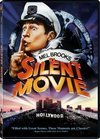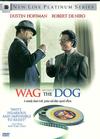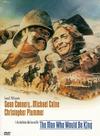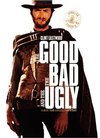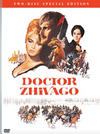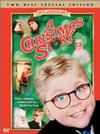
Director: Sylvain Chomet
Genre: Foreign/ Animation/ Comedy/ Musical
The French seem to try and try again to be different from everyone else. I really believe they strive for uniqueness. Well, who doesn’t? Still, they have a way to be unique-er than anyone else. I will say they do a great job with their cooking, and their wines, but aside from that and this film, I can't think of other examples.
When French people produce something that pokes fun at themselves, it just brings a smile to my face. That’s like Confucius telling his followers, “nahh…I was just ‘B.S.-ing.” Even then, and this film is the only time I have ever seen it done, they just out do anyone else who makes fun of them (except for Monty Python-nobody beats them in French mockery!)
This movie wasn't terribly strange. It was, in fact, entertaining. The dialogue was completely in the details of the animation.
Madame Souza is concerned about her troubled grandson, Champion. She tries to soothe his aching with a puppy which doesn't help. She also introduces him to the piano, but his melancholy doesn't quite dissolve- especially after he hears his grandma sing. It finally clicks with Souza what her grandson yearns for. She gives him a tricycle, which instills in him a love of cycling. He becomes happy instantaneously. This dedication lasts all the way to the Tour de France.
As Champion races in the Tour de France, the French mafia kidnaps him and two other cyclists. Madame Souza finds clues indicating that he's been kidnapped and taken to Belleville, but she doesn’t know who took him. She crosses the sea to search for her grandson. As she spent her last 10 francs on a paddle boat to chase the ship with her grandson on it across the waters, she lands in Belleville, broke and alone. Three old former divas stumble upon her in the unlikeliest of places and take her into their home. There, she discovers that these three old ladies are the legendary Triplets of Belleville.
The three still perform as an independent style jazz band and welcome Souza into their trio. During their first gig, she discovers that the French mob were the ones who kidnapped her grandson. With the help of the triplets, she breaks into the mob’s hideout and finds Champion, but the mob won't let him go so easily.
This movie had very little dialogue but was just as well without it. The detail was the most impressive animation I have ever seen. Some elements were computerized but the rest was hand drawn.
It was easy to really appreciate this movie. The music was catchy. The imagery of Belleville, which was a combination of Paris, New York, and Montreal, really had its own quiet commentary on the consumption of modern society. It was brilliantly worked out and drawn! The plot was easy to follow despite the lack of dialogue.
Caricaturization is always fun to watch. That sums up the animation nicely.







